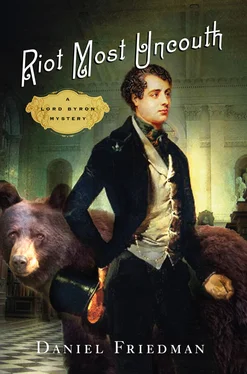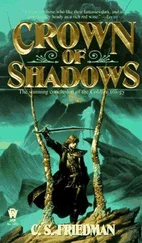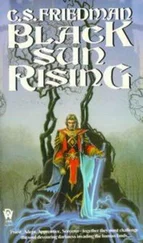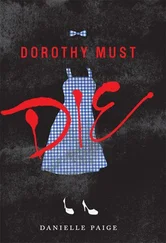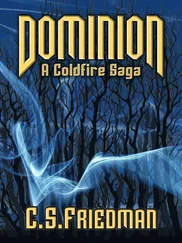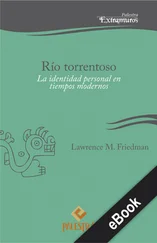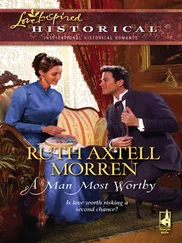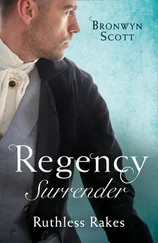Daniel Friedman - Riot Most Uncouth
Здесь есть возможность читать онлайн «Daniel Friedman - Riot Most Uncouth» весь текст электронной книги совершенно бесплатно (целиком полную версию без сокращений). В некоторых случаях можно слушать аудио, скачать через торрент в формате fb2 и присутствует краткое содержание. Год выпуска: 0101, ISBN: 0101, Издательство: St. Martin, Жанр: Исторический детектив, на английском языке. Описание произведения, (предисловие) а так же отзывы посетителей доступны на портале библиотеки ЛибКат.
- Название:Riot Most Uncouth
- Автор:
- Издательство:St. Martin
- Жанр:
- Год:0101
- ISBN:9781250027580
- Рейтинг книги:5 / 5. Голосов: 1
-
Избранное:Добавить в избранное
- Отзывы:
-
Ваша оценка:
- 100
- 1
- 2
- 3
- 4
- 5
Riot Most Uncouth: краткое содержание, описание и аннотация
Предлагаем к чтению аннотацию, описание, краткое содержание или предисловие (зависит от того, что написал сам автор книги «Riot Most Uncouth»). Если вы не нашли необходимую информацию о книге — напишите в комментариях, мы постараемся отыскать её.
Riot Most Uncouth — читать онлайн бесплатно полную книгу (весь текст) целиком
Ниже представлен текст книги, разбитый по страницам. Система сохранения места последней прочитанной страницы, позволяет с удобством читать онлайн бесплатно книгу «Riot Most Uncouth», без необходимости каждый раз заново искать на чём Вы остановились. Поставьте закладку, и сможете в любой момент перейти на страницу, на которой закончили чтение.
Интервал:
Закладка:
“What was left of them,” said Knifing, who had closed the distance between the road and the wreck of the prison-coach, and was looming unpleasantly over me as I lay sprawled in the dirt. “Quite a mess it was. I was greatly entertained to watch Bartholomew scraping Mr. Dingle off the road.” He pointed with his thumb back at the hunched figure on top of the corpse-wagon.
“That’s a queer thing to derive pleasure from,” I said.
“I’ll defer on that question to your experience, Lord Byron. You’re our reigning authority on the subject of queer pleasures.” He poked me in my bruised ribs with the end of his umbrella. “I will say that I like to see a bad man get what he deserves. That’s part of why I do this job.”
Angus scratched his jowls. “If you think Dingle’s death establishes Byron’s innocence, does that mean that you believe the Cambridge killer shot Dingle?”
“It’s not likely that there are two killers about, is it?” Knifing asked.
“I don’t suppose I know whether that’s likely or not,” Angus said. “Why would the killer rescue Byron from Dingle?”
“I don’t think he meant for me to be rescued,” I said. “How was he able to shoot them both? I’ve never met a man who could hit a fast-moving target at any great range with a musket.”
“He didn’t use a musket,” Knifing said. “He used a rifle.”
“I’ve heard of those,” Angus said with a touch of awe. “Never seen one.”
“They’re supposed to be hard to load,” I said.
I must confess I’d been as confused by the killer’s uncanny marksmanship as Angus was, but I probably should not have been. Forgetting that the alley gate at the Modest Proposal was open at night was an egregious observational failure, but my inability to recognize a rifle shot was nearly as embarrassing.
I was quite familiar with the Baker infantry rifle because I’d tried on several occasions to purchase one. In every case, the seller had either refused to part with his weapon or had demanded an exorbitant price. It was a remarkable toy and a difficult one to obtain, and so I lusted after it with a fervor that was, in other circumstances, reserved exclusively for beautiful women.
Unlike the wide, smooth barrel of a musket, a rifle’s was narrow and grooved inside; when the gun fired, the grooved track caused the bullet to come out spinning, which allowed it to maintain a straight trajectory over a great distance. Because the rifle bullet fit so tightly into this special barrel, it took more than twice as long to load as a standard-issue Brown Bess musket.
Muskets were an excellent weapon for infantry who marched in formations, since, though the accuracy of any single shot was poor, a volley from an infantry line could cut through an opposing force. But even a skilled soldier armed with a musket would miss a target at fifty paces twice as often as he’d hit it. A good rifleman could put a chunk of lead through a man’s eyeball at two hundred yards.
Since the Baker took so long to reload, it was an unsuitable weapon for infantry; a slower-firing weapon couldn’t lay down the devastating hailstorm of bullets that was the specialization of the British Army. So, riflemen fought as skirmishers, either running out ahead of the advancing line to pick off targets before the main forces engaged each other or taking positions near the battlefield to shoot officers from the side or the rear.
Two years after the events in Cambridge, the Baker rifle would become famous when a sharpshooter named Thomas Plunket used one to kill a French general from a distance of six hundred yards. Then he reloaded and killed a second officer at the same range, just to prove he could do it twice. The killing of Fielding Dingle never garnered the same level of publicity, but it required similar prowess; though the range was likely closer, the targets were moving.
Knifing and Angus had both been soldiers, so either of them could conceivably have the expertise to make such a shot, but it was unlikely that either of them did. Angus’s service predated the use of rifles by British forces by a number of years, so it seemed unlikely he’d been trained to use one. Also, he’d needed two tries to kill a fallen horse at point-blank range with his musket.
Knifing probably could have obtained a rifle without much difficulty, but his infantry days were long past and he had no professional reason to have made the effort required to become a master marksman with a new kind of weapon. And he only had one eye. Even with a tool as precise as the Baker rifle, it’s difficult to shoot with accuracy from great range when one lacks the ability to perceive depth. It seemed a folly, however, to underestimate Archibald Knifing. He was diligent and blessed with a monstrous intellect. Perhaps with skill and practice, even a one-eyed man could calculate distance and hit his target. And if there was a potential hobby he might take up that would make him one of the deadliest men in the world, it seemed like the sort of project Knifing might find appealing.
“There cannot be more than a few men in Cambridge with access to a Baker rifle and the skill to shoot two men off a moving carriage from great range,” I said. “The killer has finally made a fatal error. We need only identify those men who are likely to possess the rifles, and we can begin to interrogate them.”
Angus looked shocked for a moment, and then he got quite excited. “I’ll begin canvassing at once.”
He started to climb to his feet, but Knifing settled him with a wave of his gnarled hand. “That’s a better thought than any you’ve had with regard to hunting this killer. Better than anything that passed through the head of Fielding Dingle in the entirety of his career, excepting the bullet that killed him, which was quite impressive. But it’s a futile pursuit.”
I clenched my fists. “Why?”
“This perpetrator isn’t from Cambridge.”
“How can you possibly know that?” Angus asked.
Knifing braced his weight on his umbrella and carefully sat on the grass. He reached into his snug jacket and produced a slim silver flask. This one was polished and sleek in the same way that the constable’s was battered and scuffed, but both were welcome in my company, so long as they were full of whisky.
He took a drink from it, and passed it to Angus.
“Why would a Cambridge resident with no criminal history decide one day to start butchering professors in alleyways, or climbing into high windows to murder women? I don’t think one would. And how would such a person become an expert rifle marksman? I don’t think one could. So, rather than narrowing the focus of our inquiry, the use of the Baker rifle eliminates any chance of tracing the crimes back to any Cambridge resident with a cognizable motive.”
“But someone has killed these people, and the perpetrator must be caught,” I said.
“What good will that do? Do you think the revelation of the killer’s identity will explain anything? Do you think whatever you might discover will help you to cope with the fact that a slew of people died horribly at his whim? He’ll be a stupid person, who did these things for stupid reasons.”
“How can you know that, if you don’t know who has committed the killings?”
“But I do know who has done them, at least in general terms,” Knifing said. “And I know that nothing we can do here is likely to further our attempts to identify him, specifically.”
“How do you mean?” I asked.
Knifing took his flask back and drank again. “The hostility with Napoleon has gone on for too long. Some able-bodied soldiers are mentally ill-suited for combat. War breaks men’s minds, and long wars test the limits of even the steadfast. The killer is probably a former soldier turned lunatic vagrant, an unreasoning monster trained to kill by the military.”
Читать дальшеИнтервал:
Закладка:
Похожие книги на «Riot Most Uncouth»
Представляем Вашему вниманию похожие книги на «Riot Most Uncouth» списком для выбора. Мы отобрали схожую по названию и смыслу литературу в надежде предоставить читателям больше вариантов отыскать новые, интересные, ещё непрочитанные произведения.
Обсуждение, отзывы о книге «Riot Most Uncouth» и просто собственные мнения читателей. Оставьте ваши комментарии, напишите, что Вы думаете о произведении, его смысле или главных героях. Укажите что конкретно понравилось, а что нет, и почему Вы так считаете.
